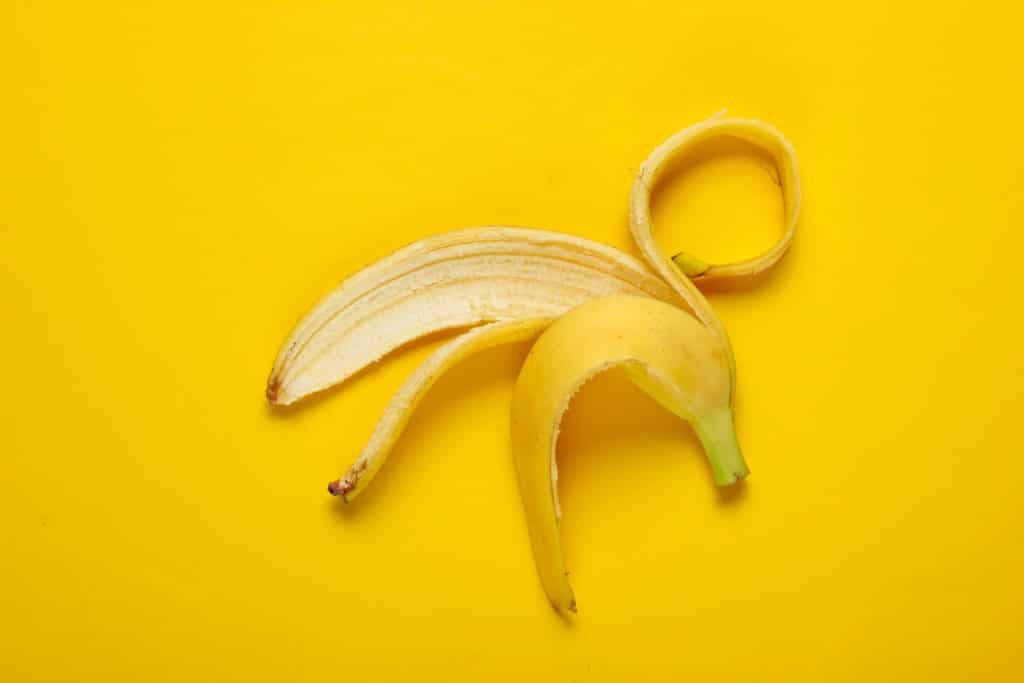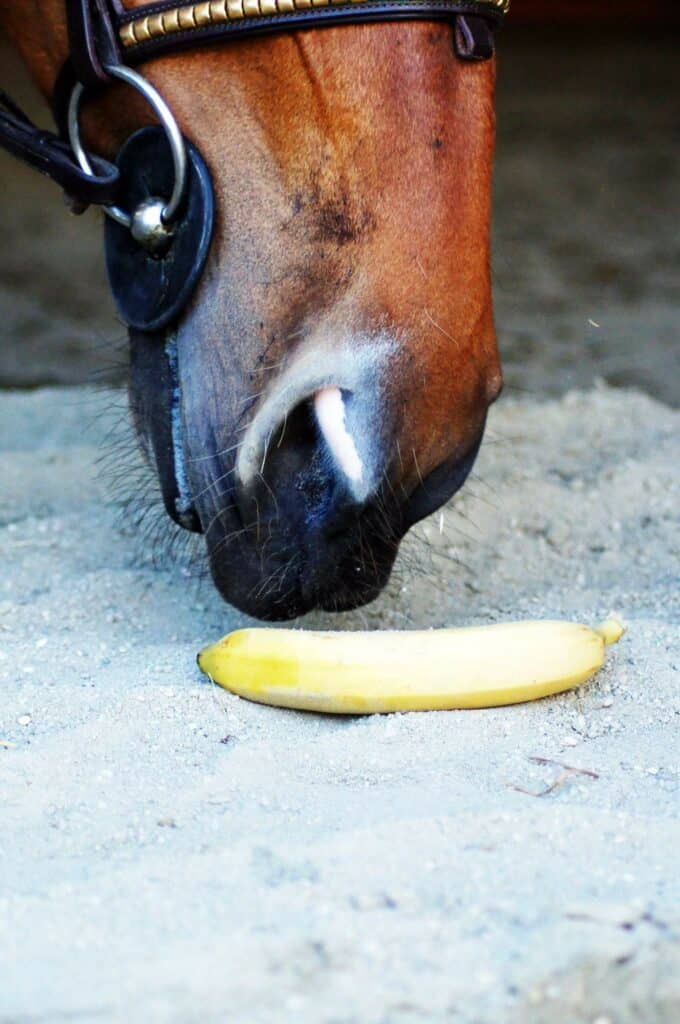Not only is Hollaback Girl a karaoke smash hit, but Gwen’s message is also surprisingly insightful when it comes to horse nutrition. A few times we’ve been around that track and seen human health concepts concerningly applied to horses. Most recently the use of bananas in horse nutrition is getting everybody fired up. For humans bananas are known for their great source of potassium, fibre, and carbohydrates, which makes them highly recommended for supporting increased energy needs pre or post workout. But for a horse’s digestive system, it’s not just gonna happen like that.
As horse’s did not evolve in tropical islands munching on bananas and coconuts, they do not have the digestive system to handle these foods. In horses, the carbohydrates such as resistant starches will travel to the hindgut undigested and wreak havoc on the microbiome. The undigested starch will encourage growth of bacteria that produce lactic acid and diminish the population of fibre fermenting bacteria. This gut dysbiosis can lead to a whole host of issues such as laminitis, ulcers, metabolic disorders, and behavioural issues.
The texture of a banana is also unsuitable to the chewing and grinding action of the horse’s mouth. Horses have evolved to chew and grind fibrous grasses and release enzymes in the mouth. If they are fed something soft that doesn’t require chewing like a banana, then less digestive enzymes are produced meaning less food is broken down effectively.
Nutritionally speaking banana’s are great for humans, however the high potassium levels in bananas are excessive for the horses needs day to day. If fed in high quantities, this can affect the absorption of other minerals and disrupt mineral balance.
So now you’ve heard that people were talking about bananas for horses and didn’t think nutritionist would hear it. Let’s leave the lyrical genius to Gwen Stefani and the bananas out of your horses’ feed.
Written by Tash Ziemer, Equine Scientist.



